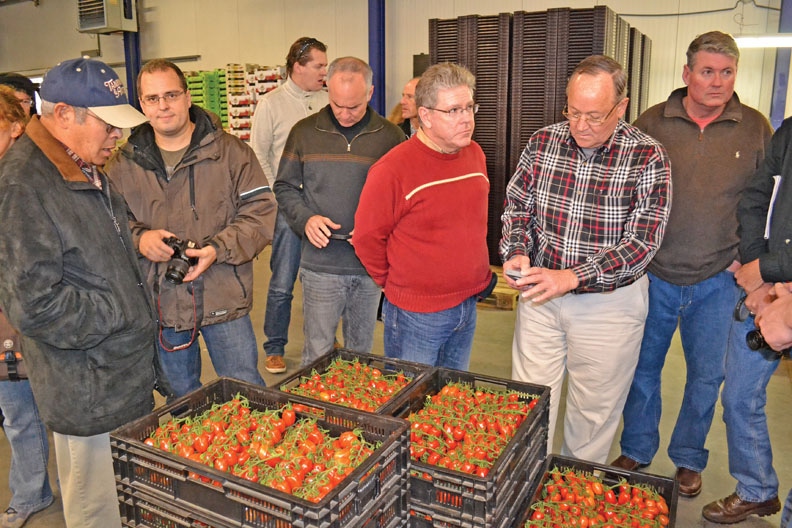January 21, 2013

Fruits and vegetable products account for more than a fourth of Bayer CropScience’s agricultural business and the multi-national corporations aims to double that area within the next decade.
Rudiger Scheitza, a member of Bayer CropScience’s executive committee, told more than 185 people from 25 countries recently that the acquisition of a California biological pesticide company, AgraQuest, is part of the plan to achieve that lofty goal.
Scheitza spoke at the Vegetable Future Form at Bayer CropScience’s world headquarters in Monheim, Germany. Western Farm Press attended.
Scheitza is responsible for Bayer’s strategy and business management.
The Bayer executive called AgraQuest, based in Davis, Calif., a “leader in innovative biological pest management solutions based on natural microorganisms with an excellent technology platform and promising platform.”
Bayer CropScience paid $425 million plus milestone payments for the company.
AgraQuest offers well-established “green products” available in more than 30 countries.
AgraQuest and biological produce development companies like it are generally associated with the organic farming market. However, Scheitza said Bayer does not believe organic farming is the model for the future.
Rather, he said the AgraQuest acquisition “strengthens” Bayer’s strategically important fruits and vegetable business by adding biologicals like Serenade, Sonota and Requiem to its existing line of highly selective “small molecule” product like Alion, Movento, Sivanto, Luna and Emesto.
Biological pesticides are finding favor in non-organic farming, according to Gary Tanimura, vice president of production for Tanimura and Antle, based in Salinas, Calif., who attended the forum. He says the newer generation of biologicals work well in conventional farming.
Growers use them to control low insect pest or disease populations without distributing beneficial insects and for resistance management program.
As world population grows, demand for food, especially fruits and vegetables, is skyrocketing. Economic growth in countries like China and India is growing the middle class, which drives demand for more calorie-rich diets, according to Rabobank’s Cyrille Filot, head of the food and agribusiness research branch of the bank, who spoke at the forum.
Feeding a growing world
This demand for more food is being challenged by limited expansion of arable land and a decline in yield growth, he said.
Frank Terhorst, head of Bayer’s strategic business management for fruits and vegetables and insecticides, said Bayer is applying advancing technology to meet the challenge of feeding a growing world.
One way of doing that is in developing products that reduce fresh produce waste by extending the vitality of fresh produce with products like Bayer’s new fungicide Luna which has proven to dramatically extend the shelf life of produce.
Like other major agchem corporations, Bayer is investing heavily in the seed business, particularly vegetable seeds. It recently acquired the Abbott and Cobb melon business. Scheitza said Bayer’s goal is to double its share of the seed business by 2016.
Bayer is deeply involved in biotechnology with GMO crops like corn, soybean, cotton and canola. However, GMO was not part of the vegetable future form.
Asked about the role GMO technology might play in fruit and vegetable research and development, Terhorst said because there are so many different varieties even in one class of vegetables, like tomatoes, the investment to develop GMO trait vegetables is too great to generate a profitable return.
About the Author(s)
You May Also Like






